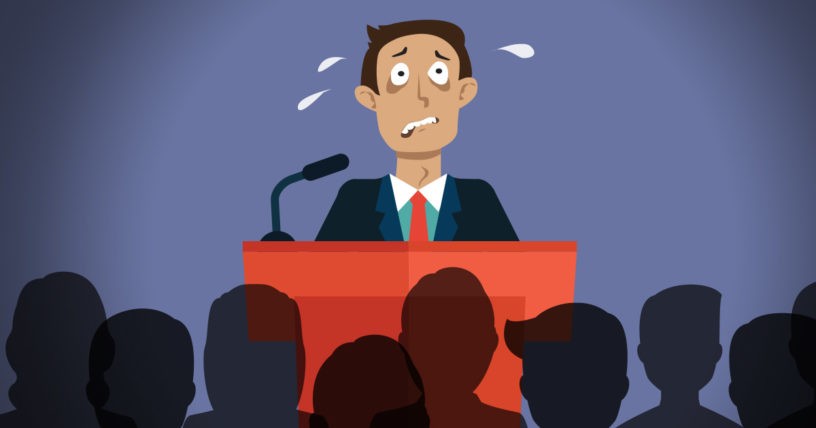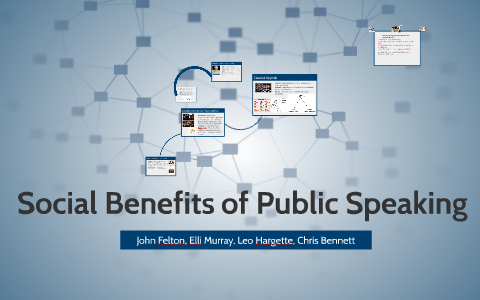Why Do Students Hate Public Speaking?
Students hate public speaking due to fear of judgment and anxiety caused by being the center of attention. Public speaking can evoke feelings of nervousness, embarrassment, and vulnerability.
Many students find the prospect of speaking in front of others daunting, leading to avoidance and negative attitudes towards public speaking. However, with proper guidance and support, students can overcome this fear and develop effective public speaking skills, enabling them to communicate confidently and express their ideas effectively.
Why Do Students Hate Public Speaking?
Public speaking, a skill often hailed as an essential tool for success strikes terror into the hearts of many students. The mere thought of standing before a crowd, delivering a speech, or making a presentation can induce a tidal wave of anxiety and apprehension. But what lies beneath this fear? In this blog post, we delve into the reasons why students often despise public speaking, uncovering the psychological, social, and experiential factors that contribute to this common dread.
1. Lack Of Confidence
Students often develop a dislike for public speaking due to a lack of confidence. This lack of confidence arises from the fear of being judged not only by their peers but also by their teachers. Negative past experiences, such as embarrassing moments or receiving poor feedback, further contribute to this fear.
Additionally, students may feel unprepared and unsure of themselves if they haven’t had adequate time to practice and refine their speaking skills. These factors can create a vicious cycle, as the more anxious and nervous students feel about public speaking, the less likely they are to engage in it willingly.
This aversion to public speaking can hinder their personal and professional development, as effective communication skills are essential in numerous aspects of life. It is crucial to address these concerns and provide students with the support and resources they need to boost their confidence and overcome their fear of public speaking.
2. Fear Of Public Speaking
Public speaking is a daunting task for many students due to various reasons. One prominent factor is the fear of public speaking itself. The anxiety and stage fright that come with standing in front of an audience can be overwhelming.
Students often worry about forgetting their lines or stumbling over their words, adding to their apprehension. Furthermore, the feeling of vulnerability while being watched by others only intensifies their dislike towards public speaking. The fear of judgement and scrutiny can dampen their confidence and hinder their ability to communicate effectively.
Students may find it challenging to express themselves in such a potentially scrutinizing environment.
3. Lack Of Communication Skills
Students often dislike public speaking due to their lack of communication skills, which is primarily influenced by inadequate training and guidance. This absence of proper instruction results in difficulty organizing thoughts and ideas during presentations. To compound the issue, students may also lack an understanding of effective speaking techniques.
Consequently, this can create anxiety and aversion towards public speaking engagements. Improving communication skills requires overcoming these barriers through comprehensive training and guidance that emphasizes the development of effective speaking techniques. By doing so, students will gain confidence and better articulate their thoughts, ultimately reducing their aversion towards public speaking.

Credit: growinghr.com.uy
4. Fear of Judgment and Rejection
The fear of judgment is a primal instinct, deeply rooted in human nature. Students, particularly in their formative years, are especially sensitive to the opinions of their peers. When faced with the prospect of public speaking, they fear being judged negatively, criticized, or even rejected by their peers. This fear of social ostracism can create a paralyzing effect, making public speaking seem like a minefield of potential humiliation.
5. Performance Anxiety
Public speaking is, essentially, a performance. And just like actors on a stage, students fear they might forget their lines, stumble over words, or appear awkward in front of an audience. This performance anxiety stems from the pressure to deliver flawlessly, often leading to overthinking and self-doubt.
6. Lack of Self-Confidence
A lack of self-confidence is a major contributing factor to the aversion students have towards public speaking. Students might doubt their ability to convey their ideas effectively, leading to the perception that they’re not ‘good enough’ to captivate an audience. This self-doubt can amplify the fear of public speaking, creating a self-fulfilling prophecy.
7. Fear of Mistakes
The fear of making mistakes in front of an audience can be paralyzing. Students worry about stumbling over words, losing their train of thought, or making factual errors. The thought of being corrected in real-time can be mortifying, causing them to avoid public speaking situations altogether.
8. Comparison and Unrealistic Expectations
In the age of social media and readily available online content, students might compare themselves to charismatic speakers they see online or in their communities. This comparison can create unrealistic expectations about their own abilities, leading to feelings of inadequacy and heightened anxiety about their own performances.
9. Limited Experience and Exposure
Like any skill, practice makes perfect. However, many students lack opportunities for consistent public speaking practice. Without adequate exposure, each public speaking opportunity becomes a daunting challenge rather than a chance to improve and grow.
10. Negative Past Experiences
Negative experiences from the past can leave lasting scars. A single embarrassing moment or a poorly received presentation can haunt a student’s perception of public speaking for years. These negative memories create a mental barrier that reinforces their fear.
11. Perceived Academic Pressure
In academic settings, public speaking is often tied to grades and evaluations. The fear of performing poorly and jeopardizing one’s academic standing adds an extra layer of pressure, amplifying the anxiety associated with public speaking.
12. Inadequate Preparation
Effective public speaking requires thorough preparation and practice. Students who fail to adequately prepare for their presentations or lack the necessary skills might find themselves struggling to articulate their thoughts, further intensifying their fear.
13. Coping Strategies
Acknowledging the fear of public speaking is the first step toward overcoming it. Schools and educational institutions can play a pivotal role in helping students conquer this fear by incorporating public speaking into the curriculum. Encouraging supportive environments, providing regular opportunities for practice, and teaching strategies to manage anxiety can gradually build students’ confidence.
Frequently Asked Questions
Why Students Are Afraid Of Public Speaking?
Public speaking can provoke fear in students due to various reasons. One such reason is the fear of being judged by their peers and teachers. The pressure to perform well and the fear of making mistakes can also contribute to this anxiety.
Another factor is the lack of confidence and self-esteem, which can make students doubt their abilities to speak in front of a large audience. Additionally, students may fear forgetting their lines or being unable to express their thoughts clearly, which can further fuel their anxiety.
The fear of public speaking can be overcome by providing students with opportunities to practice and gain confidence. Creating a supportive and non-judgmental environment can also help to alleviate their fears.
Why Do People Hate Public Speaking?
Public speaking can be daunting due to various reasons. Anxiety and fear are common emotions that people experience when speaking in front of a crowd. The pressure to perform flawlessly and the fear of being judged can trigger these emotions.
Lack of preparation or knowledge about the topic can also contribute to the discomfort. Additionally, the fear of making mistakes or forgetting the content can intensify the anxiety. Lack of confidence in one’s speaking abilities and fear of public embarrassment are other factors contributing to the aversion to public speaking.
It is essential to acknowledge and address these fears to overcome the anxiety and become a more confident speaker. With practice and proper techniques, individuals can gradually conquer their fear of public speaking and improve their communication skills.
What Are 3 Reasons Why People don’t like To Speak In Public?
Public speaking is daunting for many due to three key reasons: fear, insecurity, and lack of preparation. Fear arises from the anxiety of being judged or making mistakes. Insecurity stems from a lack of confidence or feeling inadequate in front of others.
Lastly, insufficient preparation leads to uncertainty and the fear of not being able to deliver a strong message. Overcoming these challenges requires building self-assurance, developing public speaking skills, and thorough preparation. By addressing these issues head-on and utilizing techniques such as practicing in front of a mirror or with friends, joining public speaking groups, and rehearsing thoroughly, individuals can gradually overcome their fear, boost their confidence, and deliver effective speeches in public.
Why Do Students Hate Presenting?
Students often dislike presenting due to various reasons. First, lack of confidence can play a significant role. Many students feel anxious and fear being judged by their peers. Second, inadequate preparation and lack of familiarity with the topic can lead to increased stress and discomfort during presentations.
Third, the fear of public speaking itself can be overwhelming for some students, causing them to avoid presentations altogether. Additionally, the pressure to perform well and meet the expectations of teachers and classmates can contribute to the dislike of presenting.
Finally, not being able to actively engage the audience or receive constructive feedback may also discourage students from enjoying the experience. Overall, a combination of self-doubt, lack of preparation, fear of public speaking, pressure to perform, and limited interaction can contribute to why students dislike presenting.
Conclusion
Public speaking can be a daunting task for many students, causing them to develop a deep-seated hatred towards it. The fear of public speaking can stem from various factors, such as a lack of confidence, fear of judgment, or a fear of making mistakes.
Students may feel overwhelmed by the pressure to perform perfectly in front of their peers or authority figures. The fear of public speaking can also be exacerbated by the lack of proper guidance and training in communication skills. However, it is important to address this issue and help students overcome their aversion to public speaking, as it is a crucial skill for success in both personal and professional life.
By providing a supportive learning environment, incorporating practical exercises, and building confidence through constructive feedback, educators can play a vital role in helping students overcome their fear of public speaking. With these efforts, students can develop effective communication skills and embrace public speaking as a valuable tool for self-expression and persuasion.

